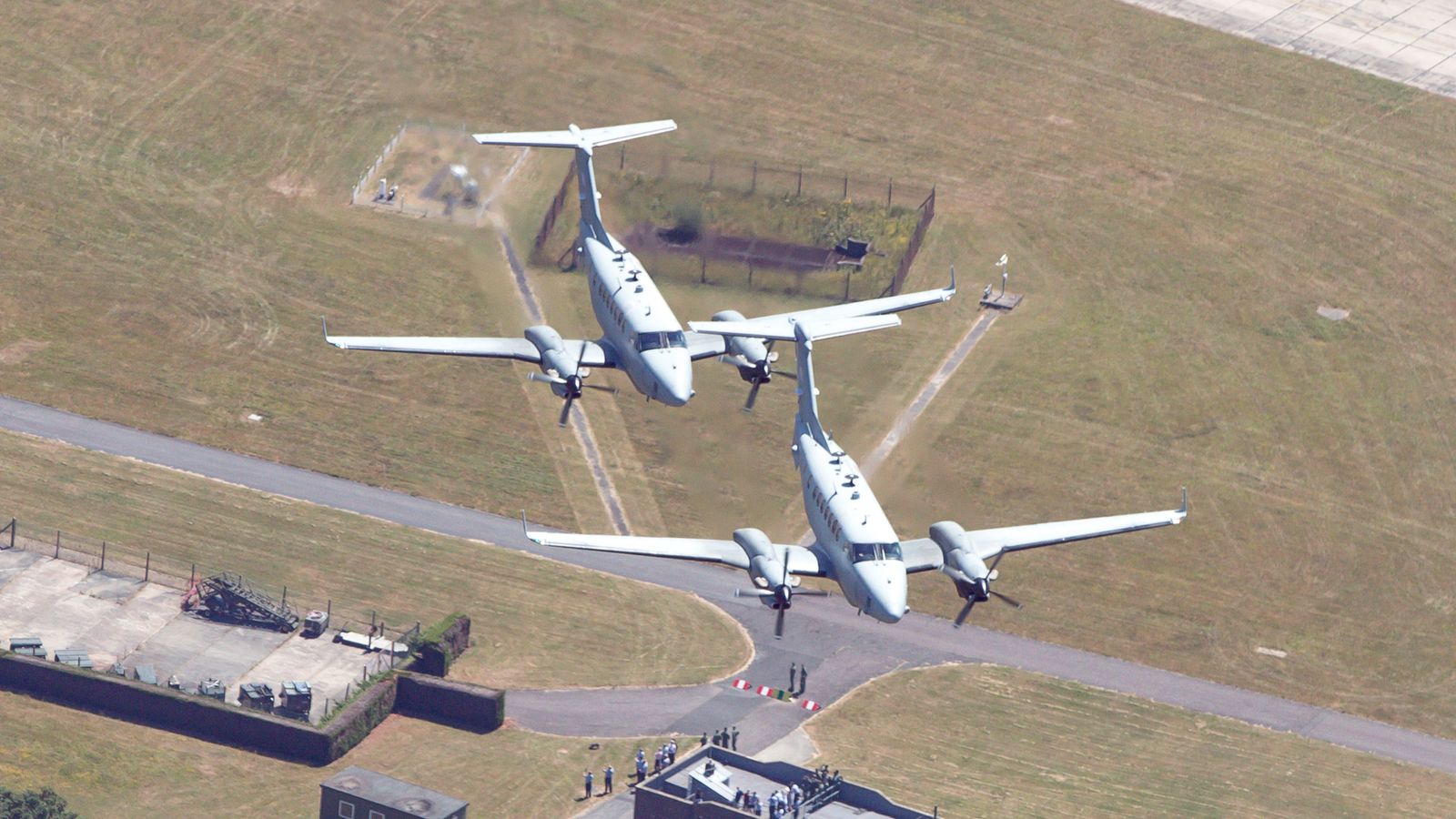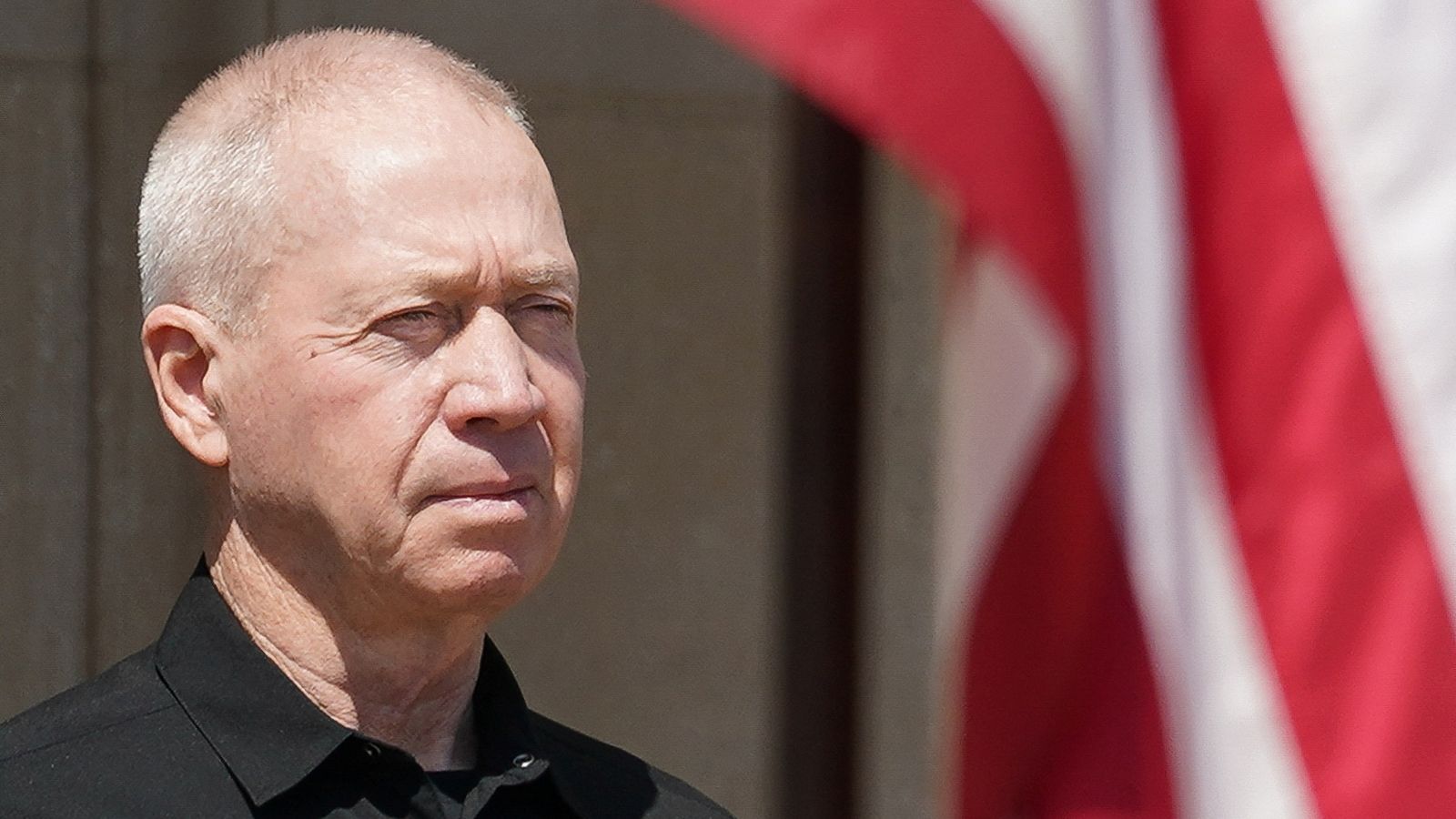As the conflict in Gaza rages on, the international community grapples with the ethical implications of military actions and the pursuit of justice. In this charged atmosphere, the role of the United Kingdom’s Royal Air Force (RAF) has come under scrutiny, particularly regarding its intelligence-gathering missions over the region. Reports indicate that since December, RAF surveillance aircraft have flown hundreds of missions to aid in the search for hostages taken by Hamas. However, this covert operation raises profound questions about the potential collection of evidence related to war crimes, which may eventually be presented to the International Criminal Court (ICC).
The Role of the RAF in Gaza
In the aftermath of the Hamas attacks on Israel on October 7, 2023, which claimed approximately 1,200 lives, the situation in Gaza has escalated dramatically. The ensuing Israeli military operations have resulted in the deaths of tens of thousands of Palestinians, including many innocent civilians. In response to this humanitarian crisis, the RAF has deployed Shadow R1 surveillance aircraft to gather intelligence specifically aimed at locating hostages.
While the Ministry of Defence (MOD) maintains that the RAF’s mission is narrowly defined—to assist in the hostage recovery effort—critics argue that this justification does not absolve the UK of its moral and legal responsibilities. According to the MOD, “Our mandate is narrowly defined to focus on securing the release of the hostages only, including British nationals.” Yet, the implications of these missions extend far beyond the immediate goal of rescue.

Evidence of Potential War Crimes
A pivotal aspect of the ongoing conflict is the mounting evidence suggesting that both Israeli forces and Hamas leaders have engaged in activities constituting war crimes. The prosecutor of the ICC has stated intentions to seek arrest warrants against Israeli Prime Minister Benjamin Netanyahu and Defence Minister Yoav Gallant, accusing them of crimes against humanity, including the starvation of civilians and intentionally directing attacks against civilian populations.
Simultaneously, Hamas leaders, including Yahya Sinwar and Ismail Haniyeh, have also been implicated in war crimes. Their actions during the conflict, as well as the repercussions of Israeli military responses, have drawn condemnation from human rights organizations and legal experts worldwide.
The Potential for Legal Accountability
The UK government has indicated its willingness to cooperate with international investigations, with a spokesperson stating, “In line with our international obligations, we would consider any formal request from the International Criminal Court to provide information relating to investigations into war crimes.” While no such request has yet been made, the prospect of RAF-collected evidence being scrutinized by international legal authorities raises significant questions about accountability and justice.
The use of surveillance technology in warfare presents complex challenges. As military actions unfold, the collection of evidence through advanced reconnaissance can serve a dual purpose—facilitating military operations and potentially providing crucial data for future legal proceedings. The ethical implications of this duality cannot be overstated.
The Controversial Nature of Military Intelligence
Military intelligence is fraught with complexities and moral dilemmas. The MOD asserts that the RAF does not participate in the conflict and is not involved in the provision of weapons to Israel. However, the reality on the ground is much more complicated. By conducting surveillance missions, the UK becomes a participant in a conflict that has devastating consequences for civilians.
Critics argue that the UK government’s approach to intelligence-sharing fails to adequately address the humanitarian impact of military operations. As the death toll in Gaza continues to rise, the lines between humanitarian assistance and military involvement blur, raising the specter of complicity in war crimes.
A Call for Greater Transparency
The potential for RAF intelligence to be used in ICC investigations highlights the urgent need for greater transparency in military operations. As the international community watches closely, the UK government must ensure that its actions align with international humanitarian law and ethical standards. The stakes are high, as any misstep could not only damage the UK’s reputation but also undermine global efforts to hold perpetrators of war crimes accountable.
The issue of transparency is further complicated by the ongoing chaos in the region. Access to reliable information is often limited, and the fog of war can obscure the truth. In this context, the role of independent investigative bodies becomes increasingly critical. As the world grapples with the implications of military actions in Gaza, credible evidence must be collected, analyzed, and presented to international courts.

The Role of the International Criminal Court
The ICC plays a crucial role in the pursuit of justice for victims of war crimes and crimes against humanity. Established in 2002, the court aims to hold individuals accountable for heinous acts that shock the conscience of humanity. The potential involvement of the ICC in this conflict underscores the importance of international law in addressing the aftermath of violence and conflict.
However, the ICC’s effectiveness is often hampered by political considerations and the complexities of international relations. Many countries, including the United States, have opted not to ratify the Rome Statute, limiting the court’s jurisdiction and effectiveness. This reality raises concerns about the ability of the ICC to pursue justice in the context of the Gaza conflict.
The Implications for UK Foreign Policy
As the UK navigates its role in the Israeli-Palestinian conflict, the potential for war crimes investigations will likely impact its foreign policy decisions. The MOD’s commitment to assisting in the search for hostages must be weighed against the broader implications of military involvement in a conflict marked by humanitarian crises.
The UK has a long history of engagement in the Middle East, and its actions today will resonate for years to come. A failure to adequately address the issue of potential war crimes could lead to further erosion of the UK’s credibility on the global stage, particularly in discussions about human rights and international law.
A Moral Imperative
The situation in Gaza presents a profound moral challenge for the international community, particularly for countries like the UK that have a vested interest in the region. As the RAF continues its missions, the potential collection of evidence related to war crimes cannot be overlooked. The UK must ensure that its actions align with international humanitarian law and contribute to the pursuit of justice for victims of conflict.
As the conflict continues, the eyes of the world are upon the UK and its commitment to upholding the principles of justice and accountability. The time has come for the UK to take a stand—both in its military operations and in its engagement with the international legal community. The pursuit of justice is not just a legal obligation; it is a moral imperative that transcends borders and speaks to our shared humanity.



